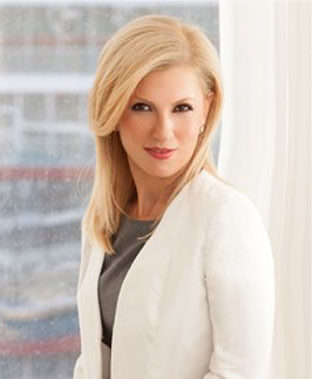The children are yours, including during a divorce. Don’t let anyone take them from you!
Contact the firm of attorney and N.P. Avivit Moskovich today. She specializes in legal representation and accompaniment in child custody cases that require a supportive attitude as well as resourcefulness in handling the case.
Child custody in divorces
When a couple is about to divorce, they have the option of drawing up a divorce agreement that includes agreements on divorce-related matters including custody of their children.
But what happens when the parents don’t arrive at an agreement on child custody?
This is where the work of a court or Rabbinical Court begins, in examining parental capacity under the guiding principle of seeking ‘the child’s welfare’. In order to determine which parent is to have custody, the court is guided by the question of which parent can provide for the child’s material and emotional needs that are essential to his/her development.
The principle of the child’s welfare in a divorce
A child’s welfare is furthered through data that is weighted in order to determine the child’s custody, according to a case’s specific circumstances. Such data includes: physical, material and emotional needs, consideration of the child’s age and special needs.
These differing and variable needs are composed of a mix of suitable living conditions; reasonable financial conditions; a suitable educational, cultural and social atmosphere; proper and devoted care for the child; a parent’s physical and mental competence to care for the child; the parent’s willingness and psychological-practical ability to provide the child with a sense of closeness, love, warmth, sensitivity, security and confidence; and above all—conveying the feeling that the child is wanted by his/her parents and surroundings.
Schnitt Commission and child support payments
It is important to emphasize that the Schnitt Commission did not deal with issues of child support payments. Nowadays in Israel child support is determined based on personal law applicable to the sides (for example between Jewish couples according to Jewish law). The obligation for child support payments is imposed totally on the father and is unconnected to the extent of child custody and visitation arrangements. The Schnitt Commission referred to a single aspect of child support in its recommendations. The Commission recommended that in the event of a joint custody ruling, payments of apartmental (housing) expenses imposed on the father in the framework of alimony payments shall be reduced by 25%.
The child’s wishes
Nowadays, in determining child custody, we are witnessing a trend of assigning substantial weight to the child’s wishes—this in the age of ‘children’s rights’ and the Convention on the Rights of the Child, to which Israel has been a signatory since 1991.
However in order to remove all doubt, the child’s wishes are not always compatible with his or her welfare. In such a case the court is forced to intervene and prevent situations in which the child’s wishes are honored but are not compatible with his/her welfare.
Parental competence for custody
Parental competence is defined as each parent’s ability to preserve the physical and mental health of the child while satisfying all needs required in doing so. This while creating a stable growing environment from both a financial and emotional aspect. In assessing competence, the court examines significant parameters required for determining the parent’s emotional maturity, responsibility, source of livelihood, and interaction with the child.
In the context of child custody it is worth calling attention to societal changes that have occurred in Israel in recent years; we are witnessing increasingly numerous cases in which the father wishes to receive custody of the children.
Custodial fathers in divorces
In the past, the father figure was perceived as the breadwinner and the woman as responsible for raising the children. However today, the situation has not only changed, but has even reversed to a certain extent. Nowadays there are significant numbers of career women who are not automatically disposed to becoming ‘housewives’, this while numerous men are embracing the house-father role. For this reason determining child custody does not always favor the woman.
The Schnitt Commission
In 2005, the Ministry of Justice appointed a commission headed by Prof. Dan Schnitt to examine different issues concerning parental responsibility in a divorce. In 2011, the Minister of Justice adopted the Commission’s recommendations and since then the theory early childhood is at the center of the media discussion.
Prior to the recommendations of the Schnitt Commission: One of the measures that helped establish the old perception—that the mother was the ‘housewife’ and the father the breadwinner—is the Early Childhood Custody Law, which up to now automatically granted the mother exclusive custody status for children up to the age of six, conditional on her being deemed fit for the mothering role.
Main recommendations of the Schnitt Commission
- Changed concept – Rather than ‘guardianship’ let us talk about ‘equal parental responsibility’ meaning that the parents are jointly responsible for the child’s care, the exercising of his/her rights, and the child’s development.
- Cancelation of ‘early childhood possession’ – Since children’s rights include their parents being responsible for raising them and for their development, and that they have personal, direct and continuous contact with each parent, the proposed law does not side with continuing the customary practice of granting the mother custody of children up to the age of six. Therefore, the law sets guidelines for both the parents and the court in cases where the parents fail to arrive at an agreement for the division and fulfillment of parental responsibility as well as how to implement the principle of the child’s welfare.
Parties opposed to the Commission’s recommendations
Those opposed to the recommendations claim that in most cases, accepting the Commission’s recommendations would make matters extremely dismal for women in divorce proceedings and give men power to extract various concessions in dividing up property and money.
In other words, more and more fathers would adopt the approach of filing for custody for illegitimate reasons—in order to the attack the woman, in order to reduce alimony payments, in order to attack the ‘Achilles heel’ of most women, and lead the woman to make painful and excessive concessions in property matters.
We can say unequivocally that there exist variations of cases such as these and that each specific case must be judged according to its specific circumstances. There are cases in which the father sincerely wishes to raise the children. It will typically be the father who will ask to continue what has begun, i.e., being a full partner in raising the children, as he was before the crisis. In such a case it is indeed desirable to examine the parenting capacity of the parents for the good of the minor child; however there are also cases in which the father chooses to file for child custody, but he does so in order to hurt the woman or lead her to make concessions in the division of property. Therefore it is essential to examine each case according to its circumstances and constantly focus on the welfare of the minor—including in a divorce case…
Contact the firm of attorney and notary public Avivit Moskovich today. She specializes in legal representation and accompaniment, including cases that call for delicacy and support on the one hand, and sophisticated solutions and resourcefulness on the other.
Our firm has vast experience in handling child custody cases. Don’t hesitate to contact us for legal assistance or advice in the matter. You may contact us by phone at: 03-6133995 or 052-3986655.



















